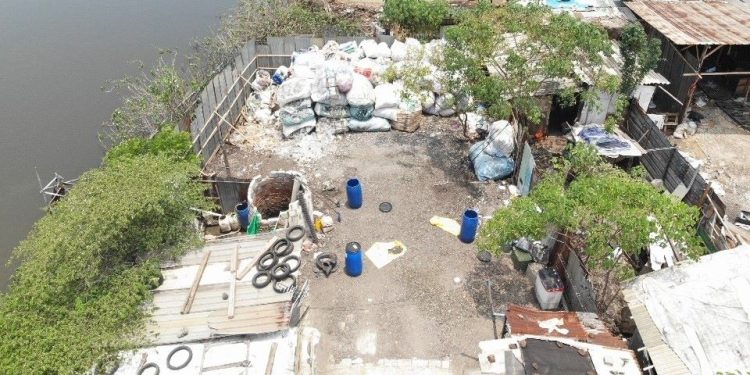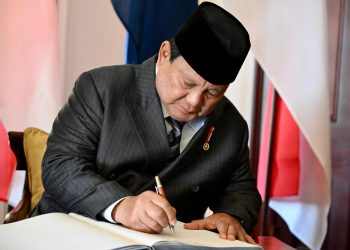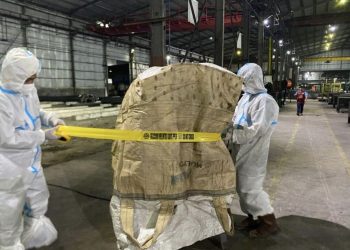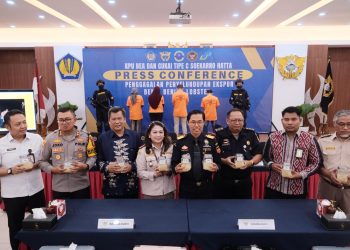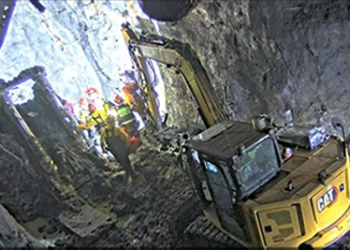Jakarta, Indonesia Sentinel — Radiation levels from Cesium-137 detected at the Modern Industrial Estate in Cikande, Serang Regency, Banten, have reached an alarming 875,000 times higher than naturally permissible levels.
The radiation readings were recorded by a joint task force involving the National Police’s Mobile Brigade (Brimob), the National Research and Innovation Agency (BRIN), the Nuclear Energy Regulatory Agency (Bapeten), and the Ministry of Environment and Forestry (KLHK).
“One of the readings even reached 33,000 microsieverts per hour, that’s 875,000 times higher than the natural background radiation at this site,” said Environment Minister Hanif Faisol Nurofiq during a briefing at the Cikande Police Station on Monday (October 13, 2025).
A special task force has been deployed to contain and neutralize the radiation exposure, operating under strict safety protocols. BRIN and Bapeten have outlined technical procedures for decontamination and the removal of Cesium-137-contaminated materials.
More than 100 personnel, including a chemical, biological, radiological, and nuclear (CBRN) response unit and an engineering platoon from the Indonesian Army (TNI AD), are involved in the cleanup effort.
“We are targeting the decontamination process to be completed as quickly as possible,” Hanif said.
The minister confirmed that the Cesium-137 contamination case has been elevated to a criminal investigation by the National Police’s Criminal Investigation Department (Bareskrim). Authorities are currently tracing the source of the contamination, focusing on two possibilities: leakage from industrial waste or contamination linked to imported scrap metal.
“The investigation is now in the prosecution phase,” Hanif said. “We are examining whether the source of the contamination came from imported steel scrap or from potential leaks involving the commercial use of Cesium-137.”
In response, Indonesia has temporarily halted imports of scrap metal to prevent the entry of radioactive waste into the country.
The government has also begun preparations to relocate residents living near the contamination site as a precautionary measure.
Hanif said the relocation plan, recommended by BRIN and Bapeten, would be coordinated with the Ministry of Social Affairs, the Ministry of Manpower, the Coordinating Ministry for Human Development and Cultural Affairs (PMK), and local police and military units.
“We must isolate the affected area and temporarily move residents until the decontamination process is fully completed,” Hanif said.
(Raidi/Agung)


